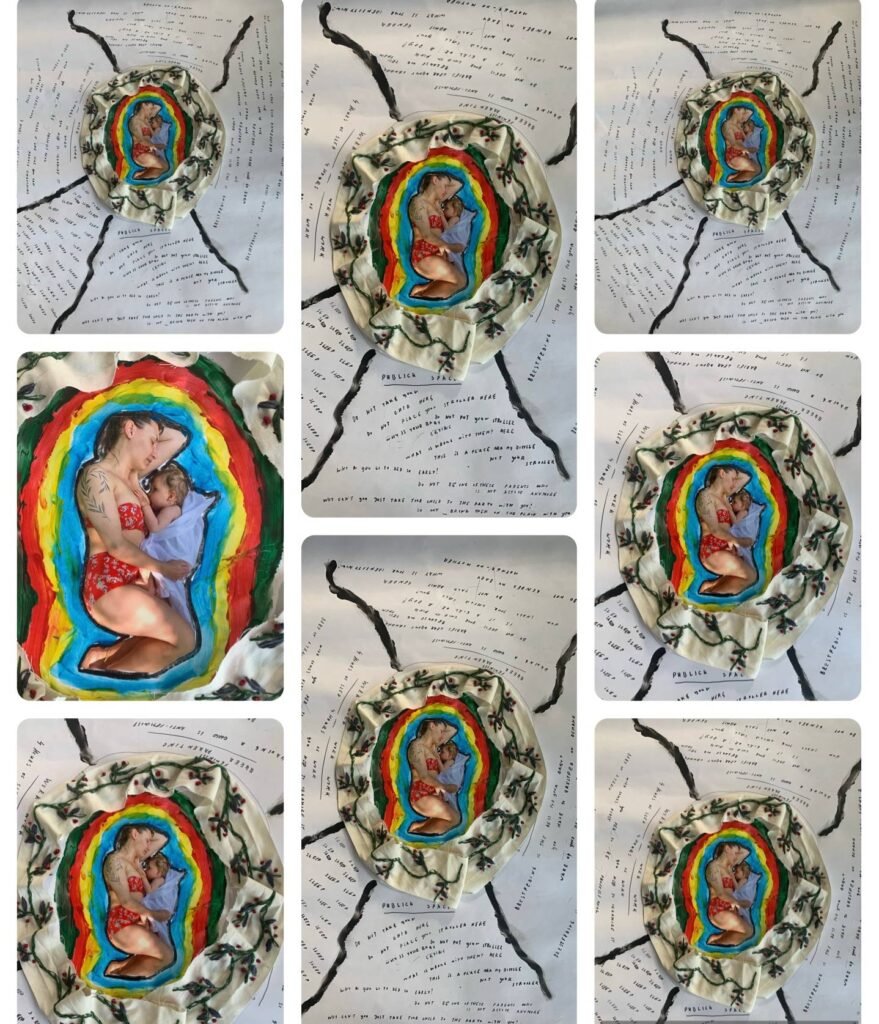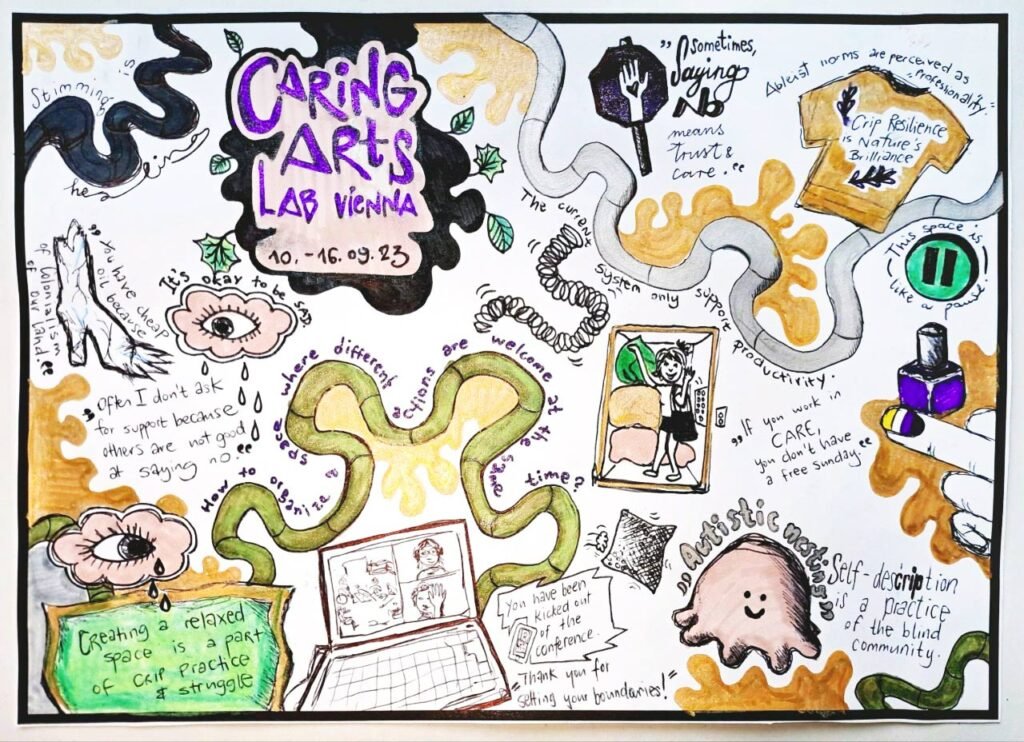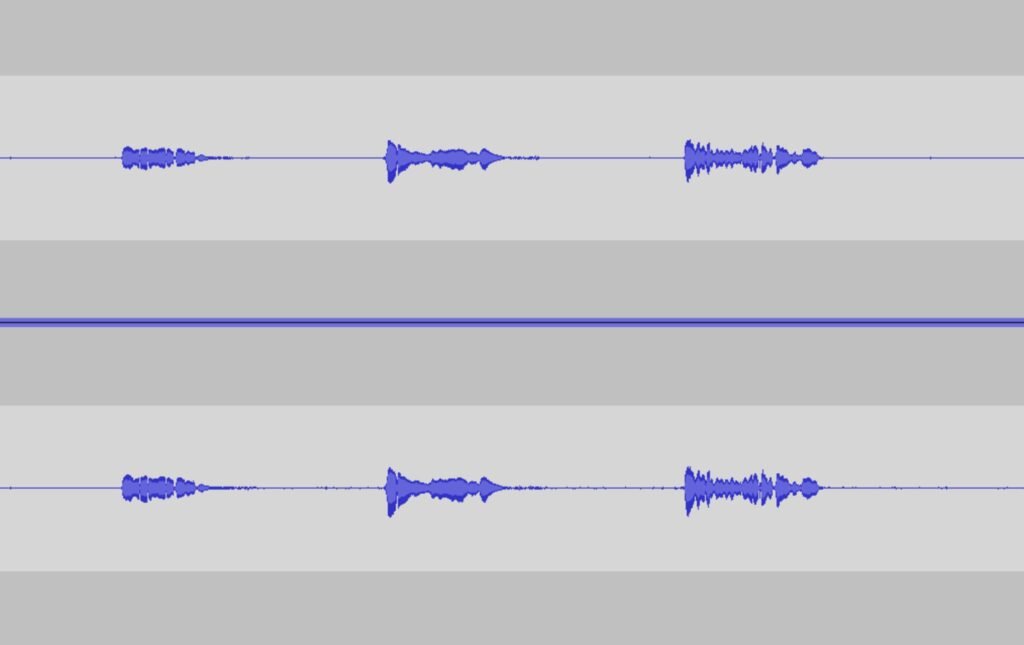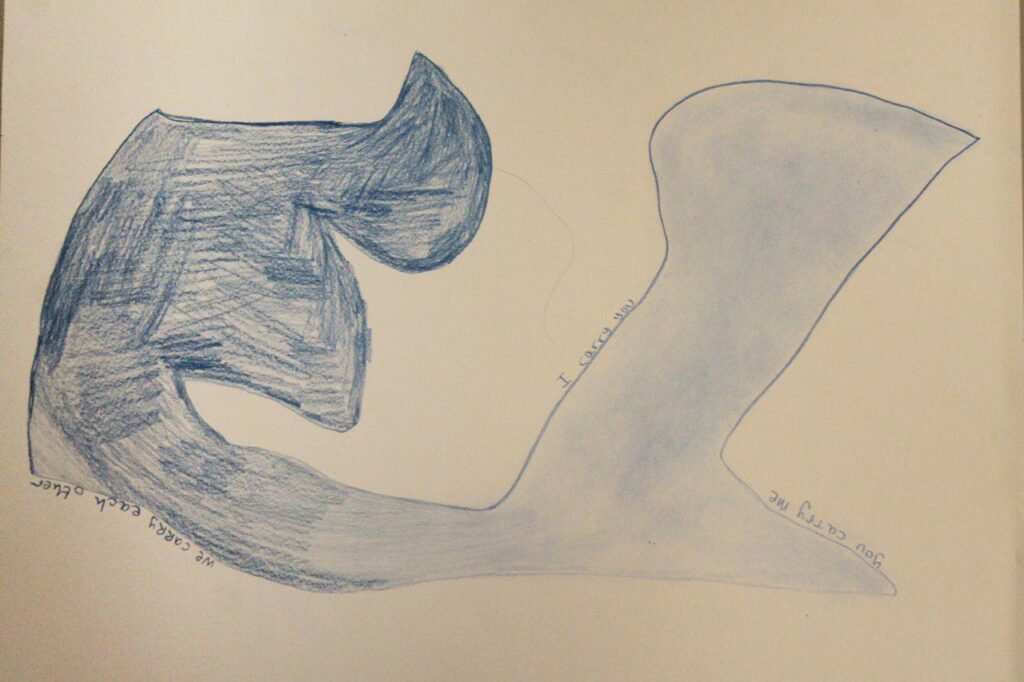A Story about Autistic & ADHD brain
by anonymous
In this article, the author invites readers to take a quick look at how autism and ADHD can affect everyday life. The author, who is a low support needs Autistic with ADHD, shows their thought process behind writing the article. Including all the side stories, random connections, and critique of systems of oppression.
Click here to
Listen to the audio version of "A Story about Autistic & ADHD brain":
I am a white autistic person with low support needs and other chronic disorders. So described here experiences come from this perspective.
As I am wearing my headphones to listen to a dynamic song, I am trying to write this article. I both need structure and chaos to function. I contain polarities in me. Some fellow autistics with ADHD will definitely relate to it too!
The hardest thing for me… oh, wait, I got distracted by the following question.
In the questionnaires for my ADHD diagnostics, I was asked if it’s difficult for me to finish tasks once the challenging part is done. Should I open that questionnaire to find that question to copy it exactly here? Finishing tasks is indeed a struggle for me, but I do my best to hide it by trying extra hard. So more often than I would like to, I end up being overworked and underpaid. This is because I usually need more time to do intellectual tasks than some neurotypical people. That’s what I have learned about myself at some of my previous jobs. One of the reasons for it is that I am bad at multitasking because it overwhelms me a lot. I can do one thing at a time.
That’s why if I have to call to get information, I need breaks in that conversation to make the notes. I also need a conversation partner to speak slowly enough and clearly because of my auditory processing issues.
While I can only do one thing at a time, I often need a side activity to happen in the background simultaneously. For example, almost all the time during the day when I don’t have to listen to someone, I listen to music (or an audiobook, or brown noise). Usually, I wear my headphones in the first minute after waking up, and I take them off the moment I go to sleep. They keep me going through the day because I both seek certain sounds and rhythms, while avoiding others. My ability to enjoy certain sounds, but avoid them in other circumstances also has to do with control. So when I am in the mood to listen to a loud rhythmic song, it will bring me a lot of joy. But I might have a meltdown, if I suddenly hear a loud ambulance siren, because of suddenness, loudness, and my lack of control of this sound.
Other times I focus primarily on music or audiobooks, while other mechanic tasks are becoming my background activity. For example, it’s often difficult for me to start doing a task, split a large task into smaller steps, or switch from one task to another. It has to do with so-called autistic inertia and executive dysfunction. When I cannot start cooking for myself because of executive dysfunction, I may try listening to an audiobook to help me start cooking. Cooking includes so many small tasks and my brain feels overwhelmed with having to do them. By giving my brain something comforting to engage with (like an audiobook about my special interest) I am helping me to actually start cooking. It doesn’t always work for me. Sometimes I will also ask myself if I need and can lower my expectations or demands. Can I reschedule something? Can I miss the deadline? Can I eat a snack instead of cooking a meal? Can I ask someone to do it for or with me? Can I change my schedule? Can I accept that to do some tasks I need approximately twice as much or more time than my peers?
The last one is hard for me to accept. And I don’t always have the privilege to have fewer things on my to-do list. And when I cannot get my (autistic) needs met, I tend to experience an autistic meltdown. For me, it’s a state of tremendous overwhelm and inability to function. I experience it when I cannot prioritise tasks, start a task, process my feelings, adapt to a change, etc. “I have time” and “I can be slow” are the words I am telling myself in these moments. And I wish them to be true for me. But that’s not always the case.
Here is what Devon Price writes about oppression and access to resources in his book “Unmasking Autism”:
“A majority of Autistic people are underemployed and suffer from exploitation, isolation, and poverty. For masked Autistics who are women, transgender, Black, in poverty, or multiply marginalised, it’s especially dangerous to think about dropping the mask. Even for those of us who have the freedom to radically unmask ourselves, there is still a lot of social judgement and the pain of past trauma to wrestle with. A single person asserting their self-worth isn’t enough to overcome these forces. A world that embraces neurodiversity would, by definition, be a place where all people, cultures, and ways of being receive the same level of dignity, autonomy, and respect. However, for Autistics seeking to achieve widespread acceptance and justice, unmasking represents both an essential step forward, and a way to stay sane while the world remains unjust”.
I am going to take a break now and come back to writing later if I even manage to do it…
As I am wearing my headphones again to listen to a dynamic song, I am trying to write this article. I both need structure and chaos to function. I contain polarities in me. Some fellow autistics with ADHD will definitely relate to it too!
The hardest thing for me … oh, wait, I got distracted by the following question…
About the author:

anonymous
In the photo is a pond on a sunny day. It’s a very warm and calming image for me because there are several interesting textures to look at.
I like the warm green of the tree reflection, the yellow of the shallow shore and the brown of the underwater plants. The waves are small. The water makes fleeting movements. Darker tree shadows, small pale blue sky reflections and softly glowing pond reflections interact with each other and have flowing shapes.
I liked watching these water movements on this warm sunny day.







